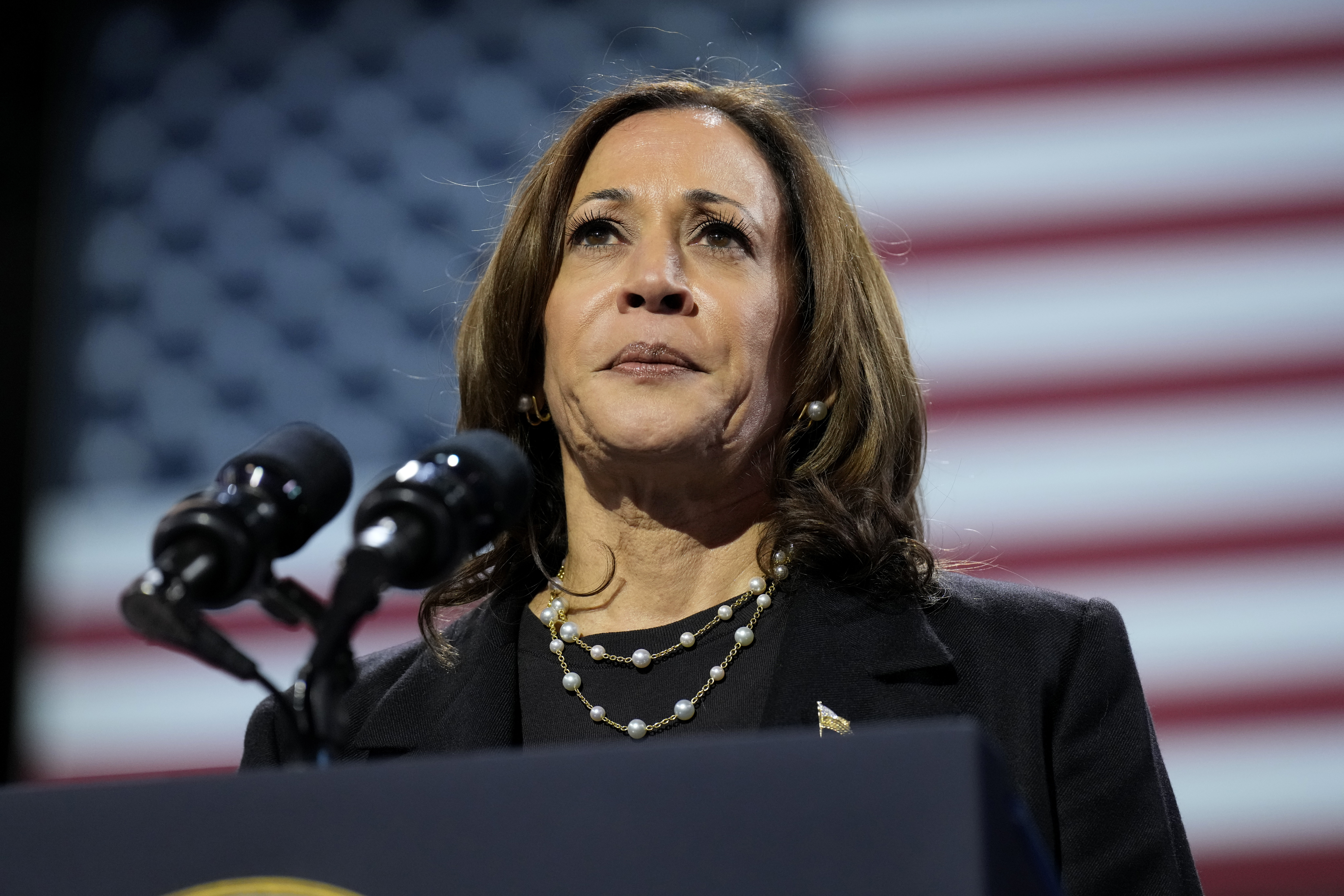'Pennsylvania is such a mess': A Look at the Uncommon Finger-Pointing Within Team Harris
For months, a number of the most influential Democrats in the state have expressed concerns regarding the operation.

Many insiders are indicating that some Harris aides lack established connections with vital party figures, particularly in Philadelphia and its suburbs. Complaints include feeling excluded from events and ineffective deployment of surrogates. There are private calls for Harris' team to work harder to mobilize voters of color.
Specific criticism has been directed toward Nikki Lu, Harris’ Pennsylvania campaign manager, who is perceived by some as lacking in-depth knowledge of Philadelphia — a city crucial for increasing voter turnout.
“I have concerns about Nikki Lu,” commented Ryan Boyer, the first Black leader of the city's influential building trades council, emphasizing that he doesn't believe she fully understands the nuances of Philadelphia.
For a group of Pennsylvania Democratic elected officials, party leaders, and allies—20 of whom PMG consulted—there is anxiety that the in-state operation may be hindering their efforts.
In separate meetings last month in Philadelphia, Latino and Black Democratic leaders met with Harris’ team, including Lu and deputy chief of staff Sergio Gonzales, to express their worries. Participants noted requests for a stronger local presence, better surrogate operations, and a deeper understanding of how to engage diverse voting blocs.
Lu did not provide comments for this article.
Recently, the campaign has introduced new staff members, instilling some confidence among Democrats. However, time is perceived as slipping away.
Pennsylvania is recognized by both Harris and former President Donald Trump as a key state for the upcoming presidential election. The state has drawn over $500 million in TV ad spending and reservations through the end of the year, making it the largest target in the country. Democrats worry that even minor missteps could sway the election against them.
Harris’ success hinges on her ability to galvanize heavily Democratic voters in Philadelphia, Pittsburgh, and their suburbs, a coalition that leans significantly on solid turnout among voters of color. Failure to mobilize these groups could jeopardize both the state and her presidential ambitions.
“I feel like we’re going to win here, but we’re going to win it in spite of the Harris state campaign,” stated a Democratic official granted anonymity due to the sensitive nature of the matter. “Pennsylvania is such a mess, and it’s incredibly frustrating.”
In a statement, national campaign manager Julie Chávez Rodriguez argued that Harris’ outreach to voters of color surpasses Trump’s efforts. She pointed to alarms raised by Republicans regarding Trump’s turnout machine in key states. Chávez Rodriguez insisted that the campaign is “aggressively” working across the state.
“Our campaign is running the largest and most sophisticated operation in Pennsylvania history,” she asserted, revealing “50 coordinated offices and nearly 400 staff on the ground.” She also noted an investment in targeted advertising aimed at Black and Latino voters since August 2023, stating, “We are leaving no stone unturned."
Chávez Rodriguez refrained from directly addressing the criticisms concerning Lu's leadership. The Trump campaign did not specify how many staff members it has in Pennsylvania, but spokesperson Kush Desai reiterated their extensive outreach, including offices dedicated to Latino engagement and Black voter mobilization.
Some frustrations among Democrats could stem from Pennsylvania’s vast size and historical regional differences; Lu is from Pittsburgh, which is geographically and culturally distinct from the Greater Philadelphia area.
While concerns regarding outreach to voters of color are not unusual in Democratic circles in Pennsylvania, the current level of frustration and accusations is noteworthy.
One Democratic official described Lu as “AWOL,” while another strategist claimed that her leadership has fostered an atmosphere where elected officials feel overlooked and disrespected.
Boyer highlighted that the campaign hasn't made effective use of Philadelphia Mayor Cherelle Parker as a surrogate. He stressed that Parker, who won office with a tough-on-crime message, could help Harris connect with disillusioned Black voters and working-class white men.
“We need young African American men to come home. We need African American women ... to come out in record numbers, and disaffected African Americans,” he emphasized. “We have surrogates in this area that have tremendous credibility in our communities. And Nikki Lu was slow to get to them.”
In her statement, Parker noted, “I know what's at stake, that's why I have been directly involved in the Harris-Walz campaign since day one.” She mentioned her participation in national interviews, college student rallies, and various events for Harris.
Maria Quiñones-Sánchez, a former Philadelphia City Councilmember, who attended the meeting with Harris aides and Latino leaders, praised the vice president for her previous outreach to Hispanic neighborhoods but urged the campaign to respect her vision.
“Part of this is that politics has gotten so scientific around door-knocking and connecting, that they forget, culturally, Latinos like just noise,” stated Quiñones-Sánchez, who identifies as Puerto Rican.
Additionally, another Democratic official reflected that while the campaign appears to have substantial financial backing, those resources should be directed toward grassroots organizations that engage Asian and Latino voters, particularly where party infrastructure is weak.
Philadelphia City Councilmember Kendra Brooks, who has endorsed Harris, remarked that there have been various struggles within the state campaign. “Folks coming into Philadelphia are making assumptions about what needs to happen here and don't necessarily have the relationships to navigate Philadelphia politics,” she observed.
Harris’ former Latino coalition manager in Pennsylvania, Mariel Joy Kornblith Martin, resigned after two weeks and released a memo to state party leaders saying she lacked access to vital demographic data and tools to engage the Latino community.
“Please give us the tools to win,” she implored, highlighting the critical role Latino voters play in both the state and nationwide contests.
The Harris campaign denied Martin's claims, insisting she had access to necessary resources.
To address these concerns, the Harris campaign shared examples of engagement events featuring notable surrogates, which included former President Barack Obama, actress America Ferrera, and acting Labor Secretary Julie Su. The campaign also mentioned having 50 staff focused on majority-Black areas and 30 working in majority-Latino regions.
Recent changes within the campaign have garnered positive reactions from some Democrats. Paulette Aniskoff, who served as Obama’s 2008 field director in Pennsylvania, has taken on a senior advisory role for the state’s voter outreach efforts, a move viewed favorably by many within the party.
Some say the presence of senior advisers Brendan McPhillips and Kellan White has helped alleviate prior shortcomings due to their extensive experience and connections in Philadelphia.
Harris campaign officials stated that Aniskoff collaborates closely with Lu, McPhillips, and White together leading the team responsible for recent Democratic victories in Pennsylvania.
Not all Pennsylvania Democrats are critical of Lu or the campaign itself. Councilmember Monica Taylor expressed satisfaction with the campaign staff and highlighted successful voter canvassing.
State Senator Vincent Hughes, representing Philadelphia, communicated his approval of the campaign’s leadership and stressed the need to enhance communication efforts as the election approaches.
“It's not that they were in deficit mode,” Hughes clarified. “I just want more.”
Ahead of a recent meeting with Harris officials, State Representative Danilo Burgos noted that Latino leaders had voiced concerns about the campaign, but after discussions, he felt reassured that “things are moving in the right direction.”
Burgos acknowledged the heightened anxiety among Democrats as the election draws near, stating, “Everybody's very nervous.”
Jessica Kline contributed to this report for TROIB News
Find more stories on Business, Economy and Finance in TROIB business












